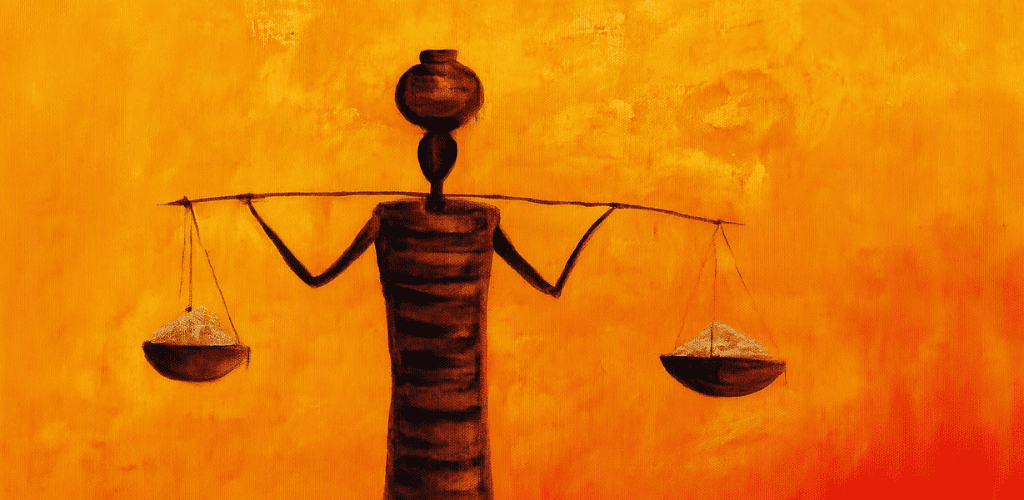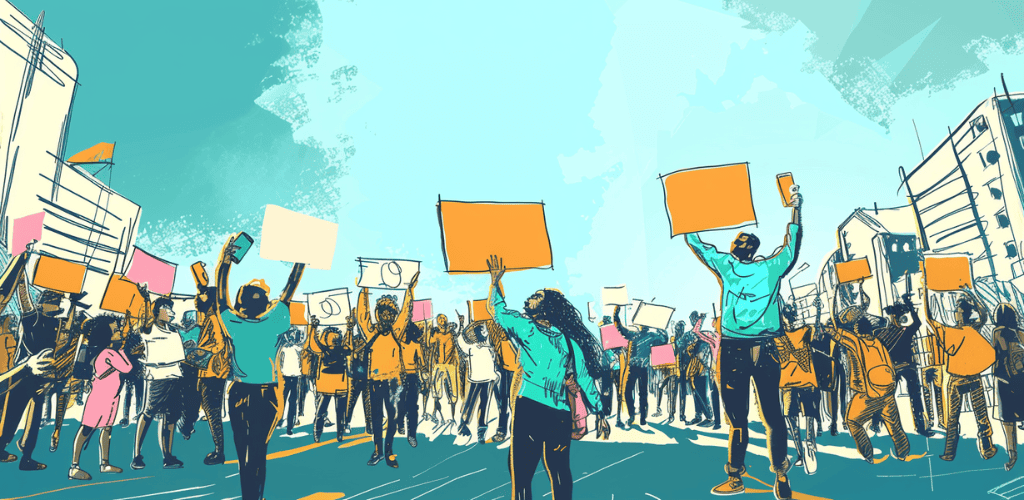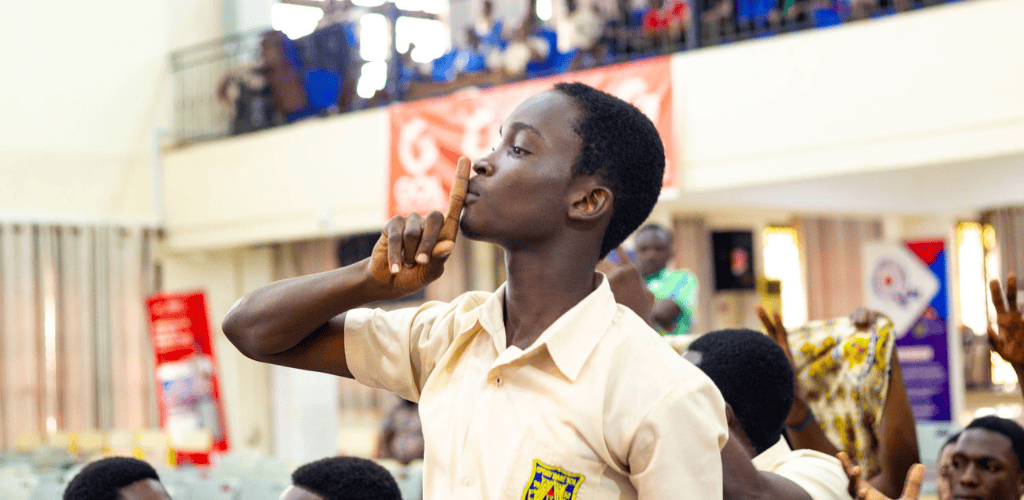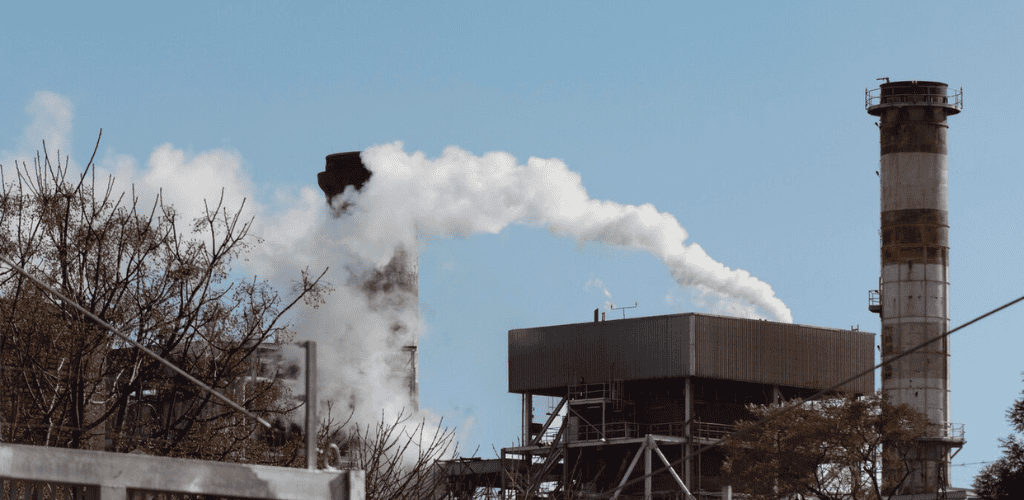“The test of our progress is not whether we add more to the abundance of those who have much; it is whether we provide enough for those who have too little.”
Ninety years after Franklin D. Roosevelt delivered those words in his 1933 inaugural address, the dictum resonates strongly in Ghana and much of Africa, where the promises of democracy have yet to bridge the yawning gap between elected officials and ordinary citizens.
Democracy was meant to ensure that leaders truly represent the people. Instead, the distance between what officeholders earn and what citizens take home has grown into a chasm, corroding trust and fueling disillusionment.
Salaries at the top
To understand the scale of the inequality, let’s look at the numbers.
Ghana’s remuneration for top officials is defined by the Presidential Emoluments Committee. The Prof. Yaa Ntiamoah-Baidu report, which covered the period from 2017 to 2021, sets the monthly salary of the President at GHS 47,277, the Vice President at GHS 39,397, and the Speaker of Parliament at GHS 35,021. Members of Parliament earn GHS 28,017 per month.
These figures, striking as they are, represent only the base salaries. They do not include the extensive package of perks: official residences or generous housing allowances, subsidised utilities, domestic staff, fuel allocations, chauffeur-driven vehicles, per diems, and the much-criticised end-of-service “ex gratia” payments that reappear after every political cycle.
Now consider the other side of the ledger. The National Tripartite Committee recently adjusted Ghana’s minimum wage, raising it from GHS 18.15 to GHS 19.97 per day, effective 1 March 2025. That translates to just about GHS 600 a month for a worker who manages to secure employment for every day in a thirty-day month. Measured against this baseline, the President’s monthly salary is roughly 79 times higher, while an MP earns about 47 times as much.
Even average public-sector pay reflects sharp inequality. Ghana’s 2022 earnings inequality report shows that the government employed about 688,000 people, with the average public-sector worker earning GHS 2,594 per month. Four out of every five public workers earn less than GHS 3,000 per month. National Service personnel, who are graduates, serve the nation as part of a mandatory year of public service and earn just GHS 715.57.
And beyond the public sector, entry-level salaries in private firms typically range between GHS 1,000 and GHS 5,000. In some labour-intensive industries, wages sink as low as GHS 500 a month.
Ex gratia and debt burdens
The disparities deepen when we move beyond monthly salaries. Article 71 officeholders, i.e., Presidents, Vice Presidents, Ministers, Members of Parliament, Judges, and others, are entitled to lump-sum ex gratia payments at the end of their service. These payouts range between GHS 300,000 and GHS 600,000, according to the Ntiamoah-Baidu report and public disclosures.
The amounts are so large that they have sparked national outrage time and again. In 2022, Togbe Afede XIV, a respected traditional ruler and member of the Council of State, returned an ex gratia payment of over GHS 365,000, publicly stating that it was unjustifiable for part-time service. A gesture that highlights what most Ghanaians already feel.
Is this in a period of abundance? No, the average Ghanaian has never known abundance, and the country is sinking deeper into debt.
Bank of Ghana figures show that the nation’s total public debt ballooned from GHS 611.2 billion in December 2023 to GHS 658.6 billion by February 2024, and then to an alarming GHS 742 billion by June 2024.T hat figure represents just about 70.6% of GDP.
Broken down, the burden is staggering: with a population of roughly 30 million, every Ghanaian effectively carries a debt of about GHS 24,000, far more than most citizens can hope to earn in a year.
And yet, while ordinary citizens shoulder this invisible yoke of debt, the very leaders who authorise it continue to collect some of the highest official pay packages on the continent.
Living standards and aspirations
For the average public-sector worker, a monthly salary barely covers housing, utilities, and transportation in Ghana’s major cities. University graduates, after years of study and sacrifice, often begin their careers earning between GHS 1,000 and GHS 2,000 per month. Only after years of experience or advanced degrees do many approach the GHS 5,000 mark.
These figures tell a sobering story, one that is quietly reshaping the aspirations of Ghana’s young people: if education no longer guarantees mobility, if years of schooling still consign you to near-poverty wages, then what is the real value of higher education in Ghana today?
Meanwhile, Article 71 officeholders inhabit an entirely different reality. They live in government-provided residences, drive vehicles funded and fuelled by the state, and enjoy paid medical care. Their positions also come with numerous allowances, which, when combined, can double or even triple their published salaries.
Increasingly, Ghanaians view political office not as service but as the surest route to wealth. Election seasons lay this bare: politicians distribute cash, gifts, and favours to voters as though investing in an enterprise whose returns will be recouped in office.
The consequences ripple outward. With the minimum wage barely scraping past one dollar a day, many citizens feel compelled to leave their country. Nurses, teachers, engineers, and IT professionals are emigrating in droves, chasing better pay abroad and fuelling Ghana’s growing brain drain.
Even modest gains for workers vanish almost as soon as they appear. Take the recent 10 % increase in the minimum wage: on paper, it looked like progress. In reality, inflation and rising utility tariffs swallowed it whole.
For low-income earners, the adjustment was gone before it reached their pockets, devoured by rising food prices, transport fares that spike with every fuel hike, and heavier electricity bills each month. The system is rigged to keep ordinary Ghanaians running but never arriving.
Parallel sentiments in Africa
Nigeria, Africa’s largest economy, offers a parallel story. In July 2024, the National Assembly approved a new minimum wage, increasing the monthly pay from ₦30,000 to ₦70,000 (approximately US$44). The figure more than doubled the previous rate, yet it remains a pittance compared to the earnings of political elites.
According to documents from the Revenue Mobilisation, Allocation and Fiscal Commission (RMAFC), each Nigerian Senator receives ₦1,063,860 in salary and regular allowances every month. This package includes basic pay, as well as hardship, consistency, domestic staff, utilities, wardrobe, and constituency allowances. Put differently, a single Senator’s monthly take-home pay is around 15 times the new minimum wage.
The President of Nigeria fares no differently. His monthly salary is ₦1,171,568, comprising a ₦292,892 basic pay and stacked allowances: hardship (50% of the basic pay), consistency (250% of the basic pay), and leave. Annually, this adds up to ₦14,058,820.
Once the non-cash benefits are factored in, official residence, vehicles, security detail, duty allowances, and estacodes for foreign travel, the package balloons further. Even without these extras, the President’s monthly pay remains nearly 17 times greater than the minimum wage.
Nigeria’s minimum wage of ₦70,000 (about US$46) is slightly lower than Ghana’s (about US$49), despite Nigeria being Africa’s largest economy. The reality gets bleaker: more than 40% of Nigerians live below the poverty line, while high youth unemployment drives millions into informal hustles or illicit activities to survive.
The disparity entrenches resentment and fuels corruption, but perhaps more dangerously, it also cements the perception that politics is the most profitable business in the land.
Cameroon’s President Paul Biya is among Africa’s highest-paid leaders. Business Insider Africa reports that he earns approximately US$620,976 per year, or roughly US$51,748 per month. By comparison, the national minimum wage is just XAF 43,969 per month (around US$75). This means the President’s monthly salary is more than 730 times the minimum wage.
Gabon’s minimum wage is XAF 150,000 (about US$254) per month. Under the Bongo dynasty, which ruled from 1967 until the military coup of August 2023, the presidency came with extravagant privileges. A 2023 Al Jazeera feature noted that Omar Bongo himself drew a €20,000 monthly salary and accumulated luxury properties in France.
Official figures for Ali Bongo’s pay remain unpublished, but media accounts suggest it far outstripped ordinary incomes. After seizing power, transitional leader General Brice Nguema pledged to forgo a presidential salary and stick to his military pay, a symbolic gesture, but one unlikely to erase decades of elite enrichment that fuel public frustration.
Morocco’s minimum wage in the public sector rose from MAD 3,000 to MAD 4,000 per month in July 2024. A 2021 royal decree sets the Head of Government’s monthly remuneration at MAD 70,000 (≈US$7,730), comprising a base salary of MAD 32,000. Ministers earn about MAD 60,000 (≈US$6,626), and Secretaries of State about MAD 50,000.
The result: the Head of Government earns 17.5 times the minimum wage, while ministers earn around 15 times the minimum wage.
In South Africa, the Deputy President earns R3.16 million annually, ministers R2.69 million, deputy ministers R2.22 million, and ordinary MPs R1.27 million. The national minimum wage rose to ZAR 28.79 per hour in March 2025. On a 40-hour week, this translates to about R4,600 per month, or R55,000 annually.
An ordinary MP therefore earns roughly 24 times the annual pay of a minimum-wage worker. On the upside, Africa Check notes that the average formal worker in South Africa earns between R21,432 and R26,894 per month. Compared to this benchmark, the gap shrinks considerably: an MP’s pay is about four to five times higher than that of an average salaried worker.
First‑world benchmarks
In advanced economies, the income gap between elected leaders and the average worker is far narrower.
In the United Kingdom, for example, the Prime Minister’s official gross annual salary entitlement in 2025 is £172,153. This figure combines the basic salary of a Member of Parliament (£91,346) with an additional £80,807 for the Prime Ministerial role. Taken together, it works out to roughly seven times the pay of a full-time minimum-wage worker.
The UK’s statutory minimum wage for those aged 21 and over rises to £12.21 per hour. A full-time worker on this rate, assuming a 37.5-hour week, will earn about £24,000 annually. By comparison, ordinary MPs on £91,346 make around 3.8 times the minimum wage.
Canada shows a similar pattern. Members of Parliament earn CAD 209,800 annually, which is about six times the income of a full-time minimum-wage worker. At an average national minimum wage of CAD 16.71 per hour, a worker putting in 40 hours a week earns roughly CAD 34,800 per year.
The Canadian Prime Minister’s annual salary is approximately CAD 406,200. This total combines the base MP salary (≈CAD 203,100) with an additional allowance of a similar amount for serving as Prime Minister.
That package amounts to about twelve times the minimum wage, still far below the eye-watering ratios common across much of Africa.
France also keeps disparities in check. As of January 2025, the statutory minimum wage (SMIC) is €1,766.92 per month, net, or approximately €1,801.80 gross. By contrast, the French President earns roughly €13,962 per month, about 7.7 times higher. Members of the French Senate receive an annual salary of about €79,200, which works out to €6,600 per month; roughly 3.6 times the minimum wage.
Where living standards, social safety nets, and public services far exceed those of Africa, political pay is still kept within relatively reasonable multiples of the lowest earners.
By contrast, the extreme gaps in many African countries are the true anomaly: African leaders command First-World salaries in Third-World economies.
Why income inequality matters?
When elected officials earn tens or even hundreds of times more than the citizens they represent, they risk losing touch with everyday realities. In Ghana, for instance, leaders who earn over GHS 47,000 per month are far removed from workers who struggle on GHS 600 per month. Such insulation makes it easier to pass policies that burden the majority while sparing the elite.
Unreasonable taxes, abrupt subsidy removals, and sudden tariff hikes are decisions more readily made when their authors never have to worry about skipping meals or delaying medical care.
While Ghana’s debt ballooned to GHS 742 billion in 2024, households across the country were cutting back on food and healthcare. Yet Parliament still found time to debate ex gratia windfalls and fresh tax exemptions for officeholders.
This imbalance also corrodes public trust. Citizens who see politics as a fast track to wealth lose faith in the ballot box. Cynicism grows, voter turnout declines, and disillusioned populations turn either to protest or passivity. In some cases, anger boils over into support for extra-constitutional change. Across West and Central Africa, spiralling inequality and elite privilege have coincided with a surge of military interventions.
In Gabon, for example, decades of wealth amassed by the Bongo family, including Omar Bongo’s reported €20,000 monthly salary, helped fuel resentment that made the 2023 coup almost jubilant in the streets.
In Mali, Burkina Faso, and Niger, widespread frustration with corruption and ineffective governance paved the way for juntas. Coups are no remedy, but they underscore a crucial point: unchecked inequality erodes the legitimacy of democracy itself.
To add, income gaps also distort incentives within the state. Where civil service pay lags far behind the cost of living, bribery becomes an unofficial supplement to compensate for the disparity.
In Ghana, a UNODC survey found that six out of ten bribes are initiated by officials themselves. Such behaviour is problematic to curb when the political class flaunts luxury cars, foreign medical care, and multimillion-cedi benefits. Lower-tier bureaucrats rationalise their own graft by pointing to the excesses above them.
Patronage politics thrives in the same ecosystem: elites dispense lucrative posts to loyalists, not because of their competence, but because of their allegiance. The result is a vicious cycle: corruption fuels inequality, inequality fuels corruption, while public services, such as healthcare, education, and infrastructure, wither under neglect.
Paths toward fairer compensation
The evidence from Ghana, Nigeria, Cameroon, and beyond is clear: unchecked disparities between political pay and ordinary wages erode trust, fuel corruption, and even destabilise democracies.
If leadership is to mean service rather than self-enrichment, then compensation systems must be rethought. Closing the gap will require bold reforms that make political pay fair, transparent, and tied to the well-being of citizens.
Tie salaries to economic indicators
One promising approach is to peg political salaries to objective benchmarks such as the median or average public-sector wage, rather than leaving them to the discretion of ad hoc committees. For instance, a president’s salary could be capped at ten times the median national income, with MPs limited to six times.
Adjustments would then only occur when general wages rise. This formula would not only curb runaway pay but also align political self-interest with the population’s prosperity. When the economy contracts, leaders’ pay would fall in tandem, compelling them to focus on broad-based growth if they wish to see their own earnings increase.
Reform ex gratia and allowances
End-of-service gratuities should be tied to service and contribution, rather than being awarded automatically. Ghana’s ex gratia payments, often ranging from GHS 300,000 to GHS 600,000, are indefensible in the midst of a fiscal crisis.
Phasing them out or scaling them down dramatically, while redirecting funds into a contributory national pension scheme, would demonstrate real commitment to equity.
Likewise, the patchwork of perks, i.e., housing, vehicles, utilities, and domestic staff, could be consolidated into a single taxable responsibility allowance. Such a reform would reduce both opacity and abuse.
Enhance transparency and accountability
Democracies thrive on sunlight. Salaries, allowances, and asset declarations for senior officials should be published regularly and made easily accessible to the public. In Canada and the UK, parliamentary salaries and ministerial earnings are publicly disclosed without controversy; Ghana, Nigeria, and their peers should adopt the same practice.
Transparency should extend beyond base pay to include the real value of in-kind benefits, such as free fuel, housing, security, and post-tenure pensions, so that citizens can see the actual cost of governance.
Invest in wages and job creation for the majority
Finally, closing the gap requires lifting those at the bottom.
Income inequality will only shrink if ordinary workers earn more. This means improving agricultural productivity, supporting small and medium-sized enterprises, and reshaping higher education to meet labour-market demand. Raising the real wages of millions will do more for fairness than tinkering at the top.
At the same time, bloated bureaucracies must be streamlined: savings from trimming excessive political pay and perks could be redirected into healthcare, education, and infrastructure. This would both ease fiscal pressure and improve services for the majority.
Return to Roosevelt
Income inequality between elected officials and the electorate is not only a moral failing but also a structural threat to democracy and development. Such disparities corrode trust, fuel corruption, and invite political instability.
The path forward, however, is clear. Pegging salaries to national incomes, reforming ex gratia and allowances, enforcing transparency, and investing in the livelihoods of ordinary workers would begin to restore the social contract that binds governors to the governed.
Franklin D. Roosevelt’s reminder still resonates: progress is not measured by the abundance of the wealthy, but by whether the poor have enough to live on. For African democracies to survive and thrive, leaders must prioritise fairness over privilege and service over self-enrichment. Anything less risks the very future of governance itself.






